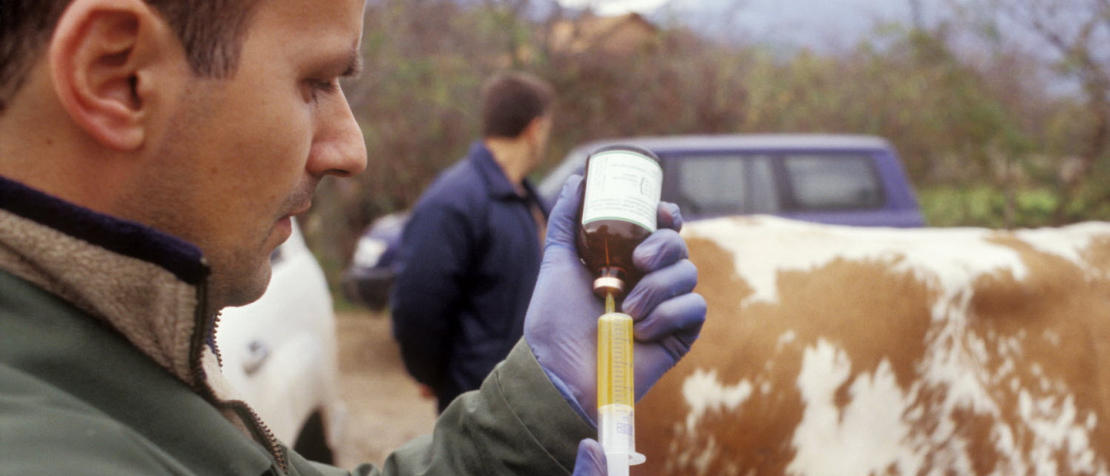Antimicrobial use and resistance in the livestock sector take centre stage in Budapest

©FAO/Liana Miuccio
Globally, we are faced with an urgent and unprecedented need to significantly reduce the growing global threat of antimicrobial resistance (AMR) in the livestock sector caused by overuse and misuse of antimicrobials.
To accelerate work to combat AMR in the Western Balkans, the Food and Agriculture Organization of the United Nations (FAO) convened a technical consultation meeting on antimicrobial use and resistance in the Western Balkans, from 6 to 7 December, in a hybrid format. The meeting brought together representatives from the veterinary services and food safety authorities of Albania, Bosnia and Herzegovina, Kosovo1, Montenegro, North Macedonia, and Serbia, as well as the main international agencies working in the region on the topic: the European Commission, the European Food Safety Authority (EFSA), the World Health Organization (WHO) and the World Organisation for Animal Health (WOAH). The last two, together with FAO are part of the Quadripartite, which promotes and coordinate One Health implementation.
Antimicrobial resistance, often called the “silent pandemic,” poses a significant risk to human, animal, plant, and environmental health, and accordingly, the One Health approach advocated by the Quadripartite is the appropriate mechanism to respond to it. One Health supports actions that recognize the interconnection between people, animals, plants, and our shared environment. AMR, together with zoonoses and food safety, constitutes one of the main focuses of One Health. As one of the Quadripartite partners, since 2015, FAO has been actively engaged in addressing the issue, guided by its Action Plan on Antimicrobial Resistance 2021–2025. The plan outlines five key objectives, such as increasing awareness in relevant actors, strengthening surveillance and research, enabling good practices, promoting responsible antimicrobial use, and enhancing governance and resource allocation.
To better understand the current situation of antimicrobial use and resistance in the livestock sectors of the six countries or territories of the Western Balkans, FAO conducted a series of knowledge-attitude-practice (KAP) surveys, the results of which formed the basis for the discussions during the meeting.
The objective of the technical consultation meeting was two-fold. One motive for the meeting was to use it as a forum to foster exchange among the delegates of updates on antimicrobial use and resistance challenges and initiatives in the region undertaken by both countries and international agencies. Another goal was to identify gaps and discuss possible follow-up actions, including technical support from FAO.
The first session, chaired by FAO, aimed to set the scene by providing an overview of current activities and tools from international organizations. Representatives from the Quadripartite agencies FAO, WHO, WOAH, and EFSA shared insights followed by an inspirational success story from Denmark on tackling antimicrobial use and resistance. The second session dove into the current antimicrobial use and resistance situation in the Western Balkans, featuring national-level presentations. Albania, Bosnia and Herzegovina, Kosovo1, Montenegro, North Macedonia, and Serbia presented their progress, initiatives, gaps, and priorities, with a focus on the livestock sector and foods of animal origin.
The second day focused on regulations surrounding antimicrobial use and resistance. Presentations covered European Union regulations, as well as Codex Alimentarius Commission texts related to AMR.
The meeting concluded with a project proposal presentation and group discussion to consolidate a final draft endorsed by countries/territories and agreed-upon regional mechanism for coordination.

1All references to Kosovo should be understood to be in the context of United Nations Security Council resolution 1244 (1999).
FAO elearning Academy: Understanding antimicrobial resistance in food and agriculture
Fact sheet: Understanding antimicrobial resistance in food and agriculture
